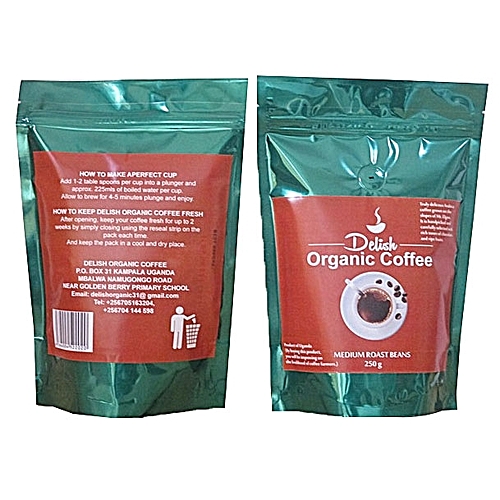Continuing a trend that began roughly four years ago, investors are pouring a record amount of venture capital into the industry. Coffee startups raised $600 million in the first seven months of the year alone–more than four times the total amount raised in 2017, according to data from CB Insights. By the end of 2018, that figure is expected to surpass $1 billion.
It helps that more Americans are picking up the caffeine habit. About 64 percent of U.S. adults have at least one cup of coffee every day, up from 57 per cent in 2016, according to data from the National Coffee Association.
It also helps that the indie coffee industry had a major exit in 2017 when Nestlé acquired a majority stake in Blue Bottle Coffee for a reported $425 million, according to Bloomberg. Blue Bottle, a specialty coffee roaster that began in San Francisco but now has cafés in cities across the world, had raised some $120 million from investors prior to the sale.
Investors continue to see huge potential upside in betting on coffee despite the fact that it has not traditionally been a venture capital-driven business. Coffee in the U.S. is a $12.9 billion market, so any company that can disrupt this industry with a new product has a massive opportunity to scale.
“I think everyone can see the prize with coffee,” says Sam Lessin, a partner at Slow Ventures, which invested in coffee startups like Blue Bottle and Alpine Start. “Building an iconic brand in the space–can be a really big win.”
The entrepreneurs behind these coffee startups say the venture funding is crucial to going up against the major chains like Starbucks and Dunkin’, not just so they can compete on the ground with brick-and-mortar locations, but also to stay one step ahead on product innovation.
Matt Bachmann is a co-founder of the New York City-based cold brew company Wandering Bear Coffee. Wandering Bear has raised $10.5 million, according to Crunchbase, and sells boxed coffee on tap, designed for the home or office, along with ready-to-go containers.
Bachmann notes that startups like his were selling cold brew concoctions long before Starbucks and Dunkin’ adopted the trend and helped make it a wildly popular drink. Wandering Bear’s products start at about $4 for an 11-ounce bottle and $29 for a 96-ounce on-tap container.
The trend moves from “bottom up, not top down,” says Bachmann. “It’s the startup that does something different at a small scale, proves to be popular, and then gets adopted more broadly.”
Refrigerated ready-to-drink coffee is one such trend driving the recent boost in investments. By 2024, the ready-to-drink coffee and tea industry is expected to reach sales of $116 billion, up from $71 billion in 2015, according to Grand View Research. The latest iteration of the trend involves coffee beverages with a healthy twist.
New York City-based Kitu Life makes a ready-to-drink “super coffee” that is sugar-free, lactose-free, and includes 10 grams of protein in a 12-ounce bottle. CEO Jim DeCicco says the key to his company’s success is the ability to offer healthy coffee products without sacrificing taste. “If we are providing a better-for-you option, it has to be as delicious as the high-calorie products on the shelf,” says DeCicco. Kitu coffee is sold online and in retailers like Acme, Wawa, and Whole Foods.
Grant Gyesky, the co-founder of Rise Brewing, which sells a ready-to-drink cold brew infused with nitrogen to give the drink a creamy flavor, says adding the nitrogen gave the brand an identity in a crowded space. Gyesky says Rise’s products appeal to consumers’ growing preference for healthier food and drink products. Rise declined to share how much total funding it’s raised. Rise, which raised an undisclosed amount of venture capital, sells its products online and in select Whole Foods and Safeway stores.
And customers are willing to spend more on these specialty drinks: 48 percent of Millennials drink gourmet coffee beverages every day, according to National Coffee Drinking Trends. Blue Bottle sells Port of Mokha coffee from Yemen, and charges $16 per cup.
“There are people who like almost anything. You just have to find them and make sure you put the right experience in front of them,” says Lessin. “I don’t think its just price, it’s flavor profile and it’s experiences.”
Dan Scholnick, general partner at Trinity Ventures, which invested in Bulletproof Coffee–a line of coffee beans, ready-to-drink beverages, supplements, and oils–still sees plenty of room for innovation among coffee startups.
“When you see disruption like that in a market, it’s a signal it’s a good opportunity for startups to enter and fill the void created by changing consumer tastes,” Scholnick says.
But when will the specialty coffee market cool down?
“The peak of artisanal coffee is not so black and white–consumers always need energy and coffee is addictive,” says Kitu Life’s DeCicco, who suspects the next big acquisition will be La Colombe. “I think if we see a peak in cold brew it will just lead to innovation in enhanced coffee or other coffee categories.”





